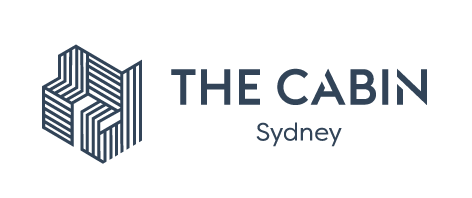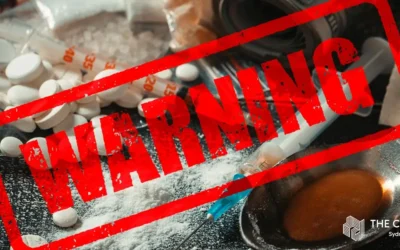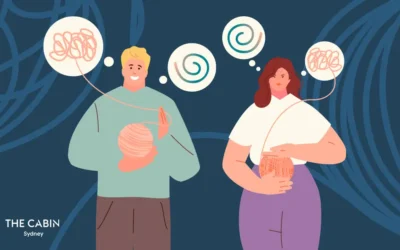Recovery support groups and social networks play a key role in averting the relapse process. Learn how they can benefit you and lead to healthy relationships.

It is just easier with support.
Recovery is about more than just quitting an addiction. It is about holistically and sustainably creating a lifestyle that cultivates your well-being, balance and happiness. It is about self-discovery, self-change and self-growth. It is about rejoining and rebuilding a life in the community. It is a challenging process, but there are many things that can help your chances of success, and one of the most important is having a recovery support group and healthy social network to fall back on — no one needs to recover alone. Social support means having friends and other people, including family, to turn to in times of need or crisis to give you a broader focus and positive self-image. A good support network is a good influence and a source of motivation. Friends can offer:
- Emotional support by giving you reassurance that you are cared for and people to empathise with what you are going through.
- Appraisal. Feedback from a social group gives you a better-rounded and grounded sense of self and helps you to monitor your behaviour and progress.
- Informational support by providing you with advice, guidance, suggestions and resources. It is especially helpful to get this type of support from someone who has been in recovery for a long time, is familiar with the process and can warn against potential pitfalls and be an inspiration.
- Companionship support by giving you a sense of belonging.
- Tangible support by helping you with tasks or material needs when you are in a pinch.
Social support not only reduces stress, improves health and immune function and helps people cope with hardships; it also literally saves lives — people who are supported by close relationships have better rates of surviving serious illnesses. It improves our well-being in many areas, and recovery is no exception. According to the Australian Psychological Society “(Emphasising) shared experiences and mutual support as central to addiction recovery, may support sustained change.” Community provides ongoing support for everyday life, and can also help an addict who has relapsed and needs help to get back on track. A recent study by Chyrell Bellamy, MSW, PhD and Michael Rowe, PhD of Yale University, found that working with peers in a recovery community environment may reduce alcohol use, drug use and criminal justice charges for at-risk populations. Being part of a community increases feelings of belonging and security, and gives you outside accountability that is essential in decreasing the possibility of secrecy and encouraging healthy decision-making.
Toxic people are like toxic habits.
If you have spent years of your life in the midst of addiction, you have probably developed some unhealthy relationships to go along with it. These relationships are often based on substance abuse and take place in a context of codependency. You may notice during your recovery that you do not actually have as much in common with these people as you thought you did, that what you had in common were your self-destructive habits. A crucial part of your recovery is letting these relationships go. This can be one of the most challenging parts of creating the lifestyle changes necessary for your recovery. Remember, it is natural for people, circumstances and relationships to change. The most challenging experiences are usually also the most rewarding.
“People have a hard time letting go of their suffering. Out of a fear of the unknown, they prefer suffering that is familiar.” — Tich Ngat Hanh
During your recovery, you may notice your friends falling into one of two camps: those whose relationship with you was based on your shared addiction, who enabled you to continue it and who do not support your efforts to recover, and those whose relationship with you is based on genuine principles of friendship and who have your best interest at heart. Not everyone is emotionally prepared to be a supportive friend during crucial times; sometimes people who are still struggling with addiction themselves feel threatened when a friend enters recovery because it reflects on their own drug or alcohol dependency. They may pressure you to participate in social activities that are not conducive to your recovery or urge you to give up, but it is okay to set boundaries. In fact, nostalgia for your drug-using days and temptation to hang out in your old scene should be recognised as red flags during recovery. This is especially important during the early phases of recovery.
Make new friends.
Early recovery can be a vulnerable time as you are transitioning away from your old lifestyle and social surroundings. Loneliness and boredom are potential relapse triggers. Luckily, you do not have to do this on your own! Friendships are especially vital during this time — friends can offer guidance and support and help you stay engaged in the world in a positive way. Being surrounded by other like-minded people will help foster feelings of trust and decrease isolation. A sober community can help you feel included and teach you to ask for help, take suggestions and make healthy decisions. It is not all about what you cannot do. It is about building relationships that are more satisfying, fulfilling and positive, that allow you to be your best and most authentic self. It is also about being a good friend in return — addiction fosters selfish emotional habits, and recovery is a good opportunity to unlearn them. There are plenty of great ways to form friendships that support your new lifestyle:
- Recovery groups — Addicts often suffer from low self-esteem, and it can seem intimidating to initiate new relationships. Recovery groups are safe spaces to practice new skills, and enable you to automatically meet a bunch of new people who have shared experiences and common goals.
- Volunteering — Service in recovery is a great way to meet new friends. It gives you the opportunity to give back to your community, create positive change and feel good about helping others.
- Being active — Surfing, rock climbing, bush walking, running, kayaking, camping — the possibilities for endorphin-boosting, hangover-free fun are endless and there are even meet-up groups in Sydney to make it easy to join a group. Physical activity helps with confidence, mental and physical health and stress reduction. Getting outside to experience nature and feel the sun on your skin does wonders for your mood, and activities like yoga and meditation have the added benefit of producing a more balanced brain chemistry which is necessary for recovery from addiction.
- Going out — Just because you have turned over a new leaf does not mean you cannot enjoy a fine meal or an entertaining night out. In fact, with Sydney’s new craft mocktail scene on the rise, there are even more charming spaces available for people to enjoy themselves without the pressure to drink alcohol.
Socialising without using alcohol and drugs may seem unimaginable at first, but it is actually quite rewarding as you experience life and relationships without your senses dulled, with your wits about you, with more diverse experiences and without the emotional hangovers and embarrassing mistakes. Get out into the world and discover the joyous experiences that await you!
Start today.
The Cabin Sydney offers a comprehensive recovery programme including flexible group offerings every weekday evening. Our team is comprised of highly skilled and credentialed addiction experts with years of experience treating the disease of addiction. Many of the staff are in recovery themselves so they understand first-hand the nature of the disease and how it is best treated. If you or a loved one are struggling with addiction, contact us today to find out how you can get help.


